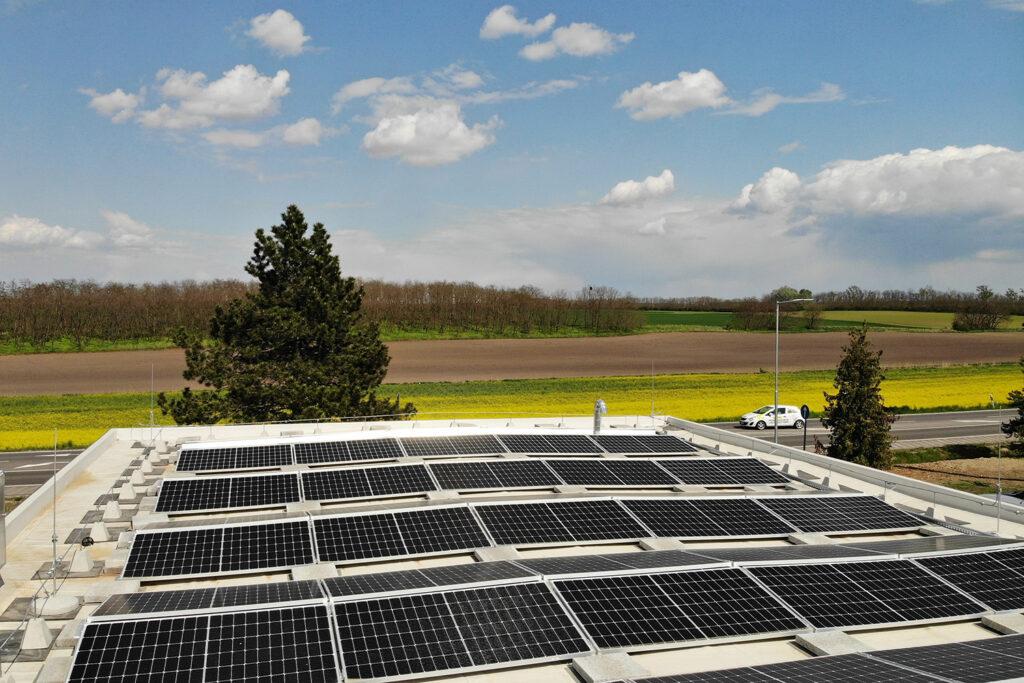Installed solar panels at OMV’s 100 domestic charging stations
Since August, nearly 50 percent of OMV Hungária’s filling stations have already been powered by solar panels. As a result of the investment, the wells will produce energy corresponding to the average annual energy consumption of 1,800 Hungarian households, which is roughly equivalent to the average annual carbon footprint of 273 Hungarian residents. The project is part of the OMV Group’s overall sustainability strategy, which aims to achieve carbon neutrality by 2050.

OMV Hungária has equipped its 100 filling stations in Hungary with solar panels as part of a large-scale green investment. The photovoltaic panels placed on top of the wells will produce a total of more than 4,500,000 kWh of energy annually, which corresponds to the annual average energy consumption of 1,800 Hungarian households. The solar panel systems will be able to generate almost half of the energy demand of the filling stations from renewable sources. Thanks to the energy produced, the carbon dioxide emissions of the filling stations are reduced by 1,200 tons per year – this is equal to the average annual carbon footprint of approximately 273 Hungarian residents.[1]
“This development is an important milestone in OMV Hungária’s sustainability plans. By installing solar panels, we not only reduce our environmental load, but also set an example of energy-efficient operation. Our goal is to continue to increase the proportion of renewable energy sources in our operations in the coming years, following the international corporate strategy, thus contributing to the creation of a more sustainable future”
– said Ján Hrivňák, managing director of OMV Hungária.
OMV Hungária’s solar project is integral to the overall sustainability strategy of the OMV Group. Reducing the carbon footprint and increasing the proportion of renewable energy sources play a key role in the parent company’s plan until 2030. The company’s goal is to achieve net zero carbon dioxide emissions by 2050, both in its own operations and in terms of the products it sells. As part of this, the company is gradually increasing the proportion of sustainable fuels and chemical raw materials, developing its e-mobility services, and making significant investments to improve energy efficiency.
Related news
Fashion, drones and sustainability – the new face of agriculture at the AgriTech InnoExpo event
🎧 Hallgasd a cikket: Lejátszás Szünet Folytatás Leállítás Nyelv: Auto…
Read more >ESG: the majority don’t ask for postponement, preparedness level is increasing
🎧 Hallgasd a cikket: Lejátszás Szünet Folytatás Leállítás Nyelv: Auto…
Read more >Related news
Sephora is coming to Belgium this year
🎧 Hallgasd a cikket: Lejátszás Szünet Folytatás Leállítás Nyelv: Auto…
Read more >







